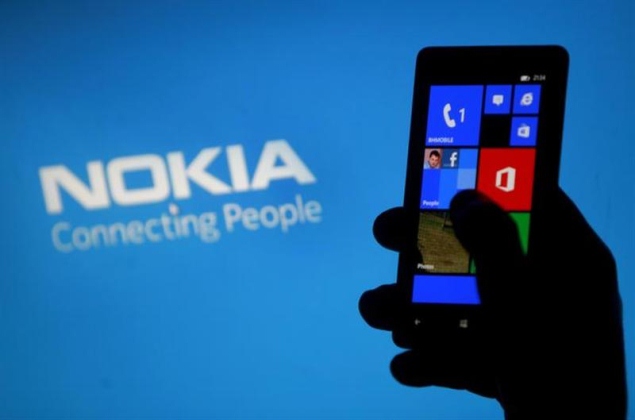- Home
- Mobiles
- Mobiles News
- Nokia's Q1 marketshare drops 24 percent as Samsung, Apple gain: Report
Nokia's Q1 marketshare drops 24 percent as Samsung, Apple gain: Report

Overall global sales figures for mobile phones rose 0.7 percent in the first three months of the year, driven by demand for smartphones and strong growth in the Asia Pacific region which helped to offset much weaker sales elsewhere.
Of the different vendors, Samsung took much of the gains, remaining in the number one position with a market share of 23.6 percent, ahead of Nokia on 14.8 percent and Apple on 9 percent. Nokia had held a 19.7 percent share just a year ago.
Those figures followed a 13 percent rise in sales by Samsung, a 16 percent increase by Apple, and a 24 percent fall by Nokia, compared with the same period last year.
So-called "smart feature phones" like those in Nokia's Asha range have limited smartphone capabilities such as Internet and email access and touch screens but are cheaper than the likes of Samsung's high-end Galaxy models or Apple's iPhone.
They are crucial to Nokia's future as it defends its leading market share in emerging economies such as India and Africa, while struggling to keep up in the smartphone race.
Worryingly for Nokia, however, Gartner said that overall sales of the cheaper feature phones were slowing, as consumers kept hold of their phones for longer.
"Nokia's mobile phone share dropped 4.9 percentage points in the first quarter of 2013 mainly due to a steep decline in feature phone sales," said Gartner in its quarterly report on the industry, which is closely watched for moves among vendors.
"Although Nokia's Windows Phone sales have sequentially improved, reaching a volume of 5.1 million units, Nokia is yet to see high growth in the smartphone segment. Nokia's position in the smartphone market dropped to No. 10 in the first quarter of 2013, from No. 8 in the fourth quarter of 2012."
Gartner said smartphones accounted for 49.3 percent of sales of mobile phones globally, up from 44 percent in the fourth quarter of 2012.
"Feature phones users across the world are either finding their existing phones good enough or are waiting for smartphones prices to drop further," said research analyst Anshul Gupta.
"Either way the prospect of longer replacement cycles is certainly not a good news for both vendors and carriers looking to move users forward."
© Thomson Reuters 2013
Catch the latest from the Consumer Electronics Show on Gadgets 360, at our CES 2026 hub.
Related Stories
- Samsung Galaxy Unpacked 2025
- ChatGPT
- Redmi Note 14 Pro+
- iPhone 16
- Apple Vision Pro
- Oneplus 12
- OnePlus Nord CE 3 Lite 5G
- iPhone 13
- Xiaomi 14 Pro
- Oppo Find N3
- Tecno Spark Go (2023)
- Realme V30
- Best Phones Under 25000
- Samsung Galaxy S24 Series
- Cryptocurrency
- iQoo 12
- Samsung Galaxy S24 Ultra
- Giottus
- Samsung Galaxy Z Flip 5
- Apple 'Scary Fast'
- Housefull 5
- GoPro Hero 12 Black Review
- Invincible Season 2
- JioGlass
- HD Ready TV
- Laptop Under 50000
- Smartwatch Under 10000
- Latest Mobile Phones
- Compare Phones
- Tecno Spark Go 3
- iQOO Z11 Turbo
- OPPO A6c
- Samsung Galaxy A07 5G
- Vivo Y500i
- OnePlus Turbo 6V
- OnePlus Turbo 6
- Itel Zeno 20 Max
- Lenovo Yoga Slim 7x (2025)
- Lenovo Yoga Slim 7a
- Lenovo Idea Tab Plus
- Realme Pad 3
- Garmin Quatix 8 Pro
- NoiseFit Pro 6R
- Haier H5E Series
- Acerpure Nitro Z Series 100-inch QLED TV
- Asus ROG Ally
- Nintendo Switch Lite
- Haier 1.6 Ton 5 Star Inverter Split AC (HSU19G-MZAID5BN-INV)
- Haier 1.6 Ton 5 Star Inverter Split AC (HSU19G-MZAIM5BN-INV)

















